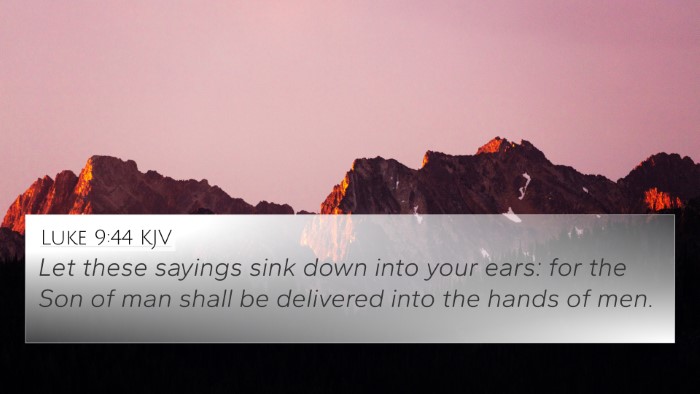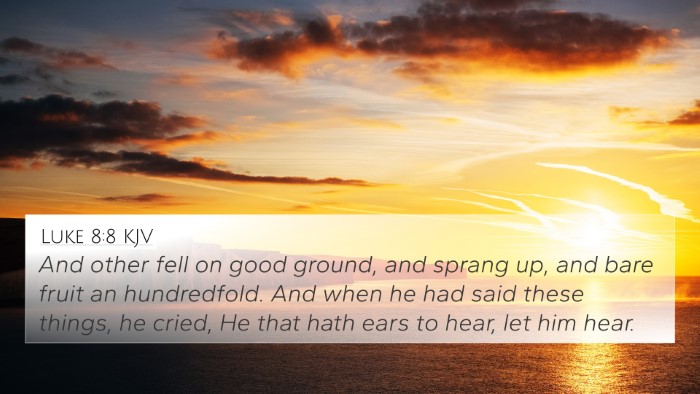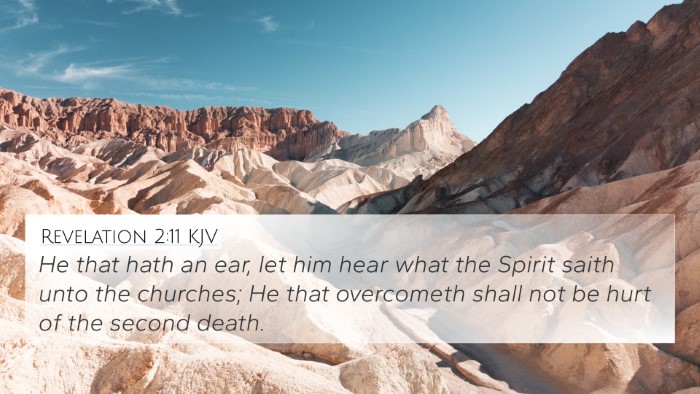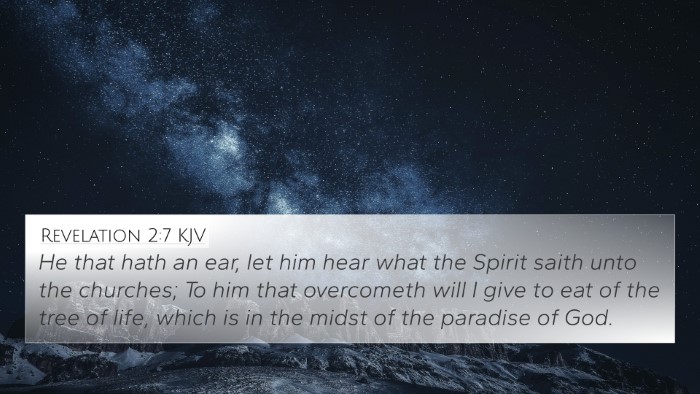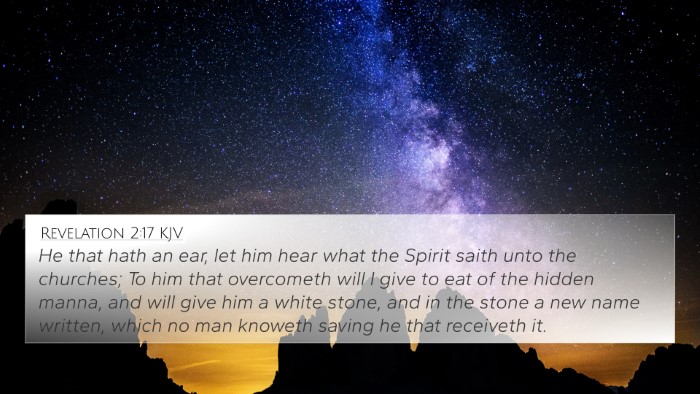Understanding Luke 14:35
Verse: "It is neither fit for the land, nor yet for the dunghill; but men cast it out. He that hath ears to hear, let him hear." (Luke 14:35)
Summary of Meaning
This verse captures the idea of salt losing its flavor and becoming worthless. Jesus uses this metaphor to illustrate the importance of maintaining one's discipleship and the essential qualities of being a follower of Christ.
Insights from Commentaries
Matthew Henry's Commentary
Matthew Henry emphasizes the vital role of salt in enhancing flavor and preserving food. In the context of this verse, he suggests that if salt loses its saltiness, it becomes useless. This serves as a warning to Christians to remain effective and relevant in their faith and witness.
Adam Clarke's Commentary
Adam Clarke elaborates on the metaphor of salt and its application to believers. He points out that flavor represents the character and influence of discipleship, which is essential in conveying the message of the Gospel. Once a believer conforms to worldly standards, they risk losing their distinctiveness.
Albert Barnes' Notes
Albert Barnes illustrates the practical implications of losing saltiness, noting that it becomes unfit for both land and dunghill. This indicates that there are severe consequences of not living out one's faith authentically, and the message is clear—one must strive to retain their spiritual effectiveness.
Bible Verse Cross-References
- Matthew 5:13: "You are the salt of the earth: but if the salt have lost his savor, wherewith shall it be salted?"
- Mark 9:50: "Salt is good: but if the salt have lost his saltness, wherewith will you season it?"
- Colossians 4:6: "Let your speech be always with grace, seasoned with salt, that you may know how you ought to answer every man."
- 1 Peter 2:9: "But you are a chosen generation, a royal priesthood, a holy nation, a peculiar people; that you should show forth the praises of him who has called you out of darkness into his marvelous light."
- John 15:5: "I am the vine, you are the branches: He that abides in me, and I in him, the same brings forth much fruit: for without me you can do nothing."
- Romans 12:2: "And be not conformed to this world: but be ye transformed by the renewing of your mind, that you may prove what is that good, and acceptable, and perfect, will of God."
- Philippians 2:15: "That you may be blameless and harmless, the sons of God, without rebuke, in the midst of a crooked and perverse nation, among whom you shine as lights in the world."
Connecting Themes Through Cross-Referencing
This passage invites a greater understanding through cross-referencing biblical texts. By exploring the parallels with other verses, we can see how losing flavor signifies a deeper spiritual loss that each believer must guard against. The connections between Bible verses such as Matthew 5:13 and Mark 9:50 emphasize this need for believers to maintain their spiritual integrity, akin to salt preserving flavor.
Thematic Bible Verse Connections
The theme of preservation and effectiveness in the Christian life recurs throughout Scripture. For example:
- Salt as a Preserver: The idea of salt maintaining purity and enhancing life is prevalent in both Old and New Testament.
- Discipleship Integrity: Verses encouraging believers to live a vibrant faith can be seen in James 2:17, which speaks about faith accompanied by works.
- Witness and Influence: 2 Corinthians 5:20 highlights the role of believers as representatives of Christ on earth.
Tools for Bible Cross-Referencing
To delve deeper into the comparative Bible verse analysis, tools such as a Bible concordance can be invaluable. They allow for a systematic exploration of scriptural cross-referencing, enabling the discovery of underlying themes and connections within the text. Utilizing a bible cross-reference guide can help you identify valuable resources for a wholesome understanding of interconnected Biblical teachings.
Conclusion
In conclusion, Luke 14:35 serves as a profound reminder of the responsibility that comes with being a disciple of Christ. The commentary insights, cross-references, and thematic connections invite believers to reflect on their effectiveness and impact. As one strives to avoid losing their 'saltiness,' they participate in a vital inter-Biblical dialogue that enriches their faith journey.





